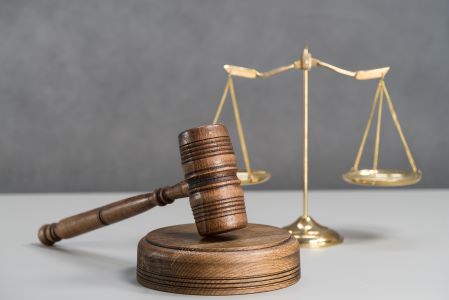What Is Non-Binding Arbitration in Florida?

As a general rule, when it’s time to try to resolve your personal injury case, you will be sent to mediation, or, if necessary and if you have previously agreed to it, to arbitration.
The Differences
There are a lot of big differences between these two procedures, but one major difference is that in arbitration, whatever the arbitrator decides, is the decision in the case–much like a judge, whoever the arbitrator says wins and loses, wins and loses.
In this way, arbitration is the final decision on your case. There is no jury, no trial, and no judge. This is one reason why arbitration is generally not a good thing for injury victims.
Non-Binding Arbitration
But Florida has a different procedure, that is like a hybrid between mediation and arbitration, called non-binding arbitration. Although not common, it is possible that you could be sent to non-binding arbitration-or that you may voluntarily opt to go to non-binding arbitration.
In normal arbitration, you cannot appeal the arbitrator’s decision. It is considered final.
But in non-binding arbitration, you can do just that. After your arbitration, if you are unhappy with the arbitrator’ s decision, you can file a motion with the court, asking to proceed to a trial. Of course, if you don’t file that motion, whatever the arbitrator decided will be final.
If You Go to Trial
But it’s not as easy as just having a trial if you’re not happy with the arbitration decision. There is a “poison pill” built in. That’s because if you go to trial and you win 25% less than what you won (or would have won, had you accepted the arbitrator’s decision) at arbitration, you will owe the other side’s attorneys fees and costs.
You can actually end up winning your case but owing money to the other side.
If you were to win $10,000 at arbitration, reject it, and win $5000 at your trial–only 50% of the original arbitration award–you would owe the other side’s attorneys fees and costs. Let’s say those fees and costs are $7500. You now owe $2,500–even though you won your case.
The opposite can happen also–the Defendant can end up owing you money if the Defendant rejects the arbitrator’s decision and then you win 25% more than the original arbitrator’s award.
In our example, if you win, $13,000 at trial after the Defendant rejected the arbitration’s $10,000 decision–the Defendant would owe you for your attorneys fees.
Should You Do It?
None of this makes arbitration itself good for consumers, and there is often no logical reason to voluntarily opt for non-binding arbitration.
But some courts do like it, and will order the parties to non-binding arbitration, so your personal injury attorney should understand it, and how it works.
Call the Fort Lauderdale personal injury attorneys at Rosen Injury Law today so you know what to expect in your personal injury case.
Source:
leg.state.fl.us/statutes/index.cfm?App_mode=Display_Statute&URL=0000-0099/0044/Sections/0044.103.html

